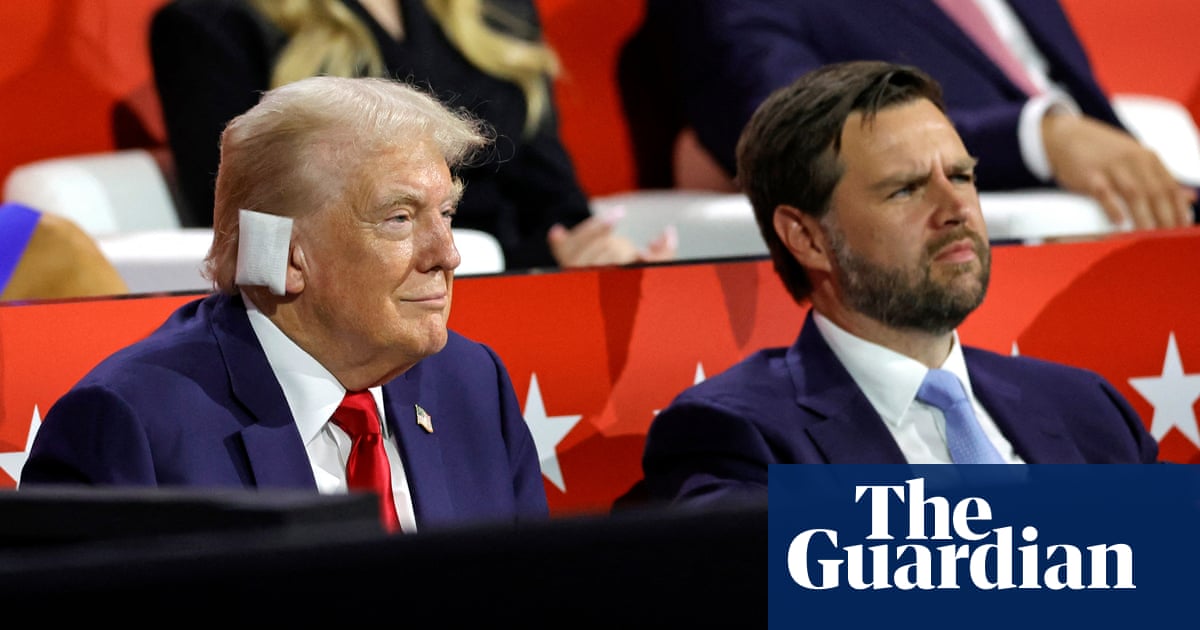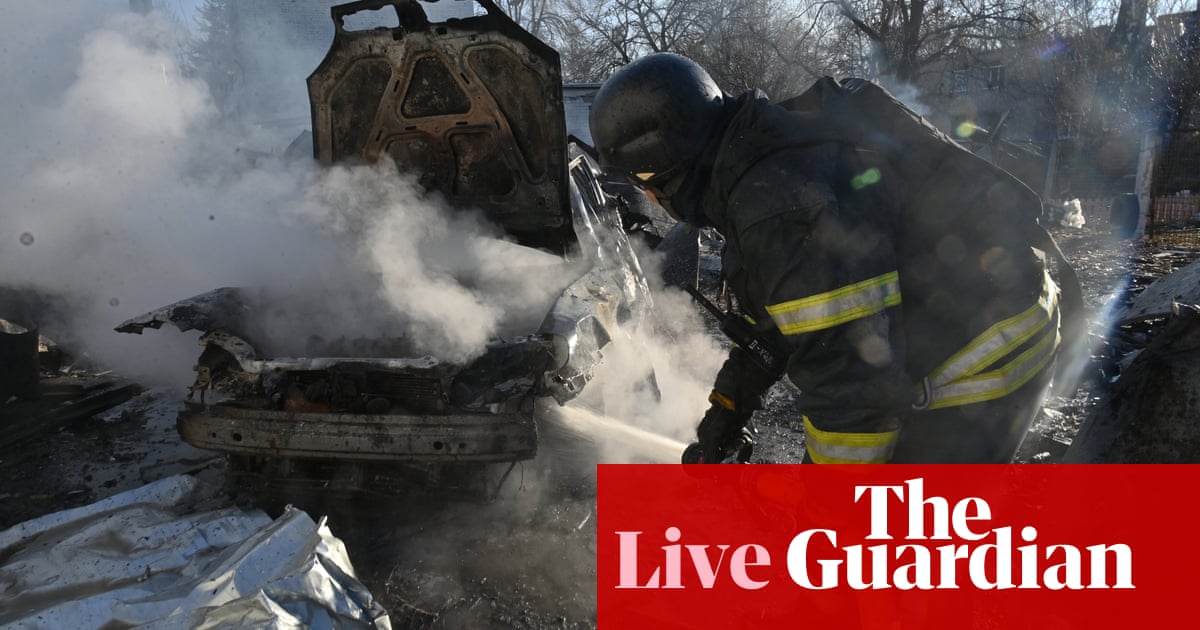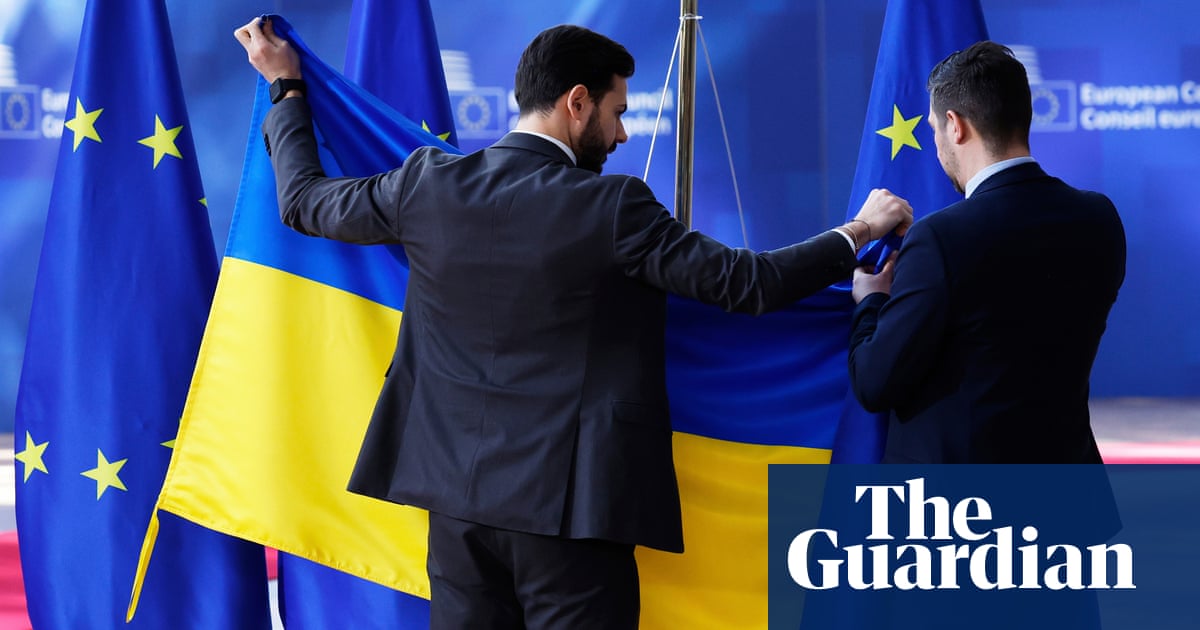Trump’s choice of Vance ‘terrible news’ for Ukraine, Europe experts warn

Donald Trump’s choice of JD Vance as his vice-presidential pick has reignited fears in Europe that he would pursue a transactional “America first” foreign policy that could culminate in the US pushing for Ukraine to acquiesce to Vladimir Putin and sue for peace with Russia.
“It’s bad for us but it’s terrible news for [Ukraine],” said one senior European diplomat in Washington. “[Vance] is not our ally.”
Foreign diplomats and observers have frequently called Trump’s actual policies a “black box,” saying that was impossible to know for certain what the unpredictable leader would do when in power.
Some have soothed themselves by suggesting that names tipped for top positions, such as former national security Robert O’Brien, would maintain a foreign policy status quo while Trump focuses on domestic affairs.
But a prospective Trump administration now has a much more energetic surrogate who will fuel Trump’s skepticism towards Ukraine and Europe, while urging on the party’s aggressive trade and foreign policy elsewhere around the globe.
“Senator Vance was one of the leading opponents of the new assistance package to Ukraine last spring and has expressed indifference to what happens in that war,” said Michael McFaul, director at the Freeman Spogli Institute for International Studies and a former ambassador to Russia. “By choosing Vance as his running mate, Trump has clarified a very clear choice for American voters in November on foreign policy.”
“President Biden’s foreign policy strategy radically contrasts with M. Trump’s approach,” he said. “Biden and Harris have promoted democracy and stood up to autocrats. Trump and Vance have paid no attention to advancing democracy abroad and instead have embraced autocrats. The contrast in foreign approaches embraced by these two presidential candidates has never been clearer in my lifetime.”
In public, Vance has criticized US aid packages to Ukraine and pushed for negotiations with Russia, although Ukraine has said it did not wish to hold talks. He has accused the Biden administration of “micromanaging” Israel’s war in Gaza, and said that America should “enable Israel to actually finish the job”.
He has advocated containment of China, saying that America was “spread too thin” in Europe and pushing for aggressive trade restrictions and intellectual property protections against China.
And he has demanded that European countries pay a larger share of their GDP into Nato, writing this year: “The United States has provided a blanket of security to Europe for far too long.”
“I think Vance was chosen at least in part for his foreign policy and for his trade policy,” said Emma Ashford, a senior fellow with the Reimagining US Grand Strategy programme at the Stimson Center Washington.
“Vance is very much representative of this new right wing has been growing in the Republican party. They’re much more nationalist, somewhat protectionist, anti-immigration … Trump was the one who largely initiated this back in 2016 and Vance has become one of the congressional leaders of it.”
Top donors reportedly engaged in a push to secure the nomination for Vance in the final hours. According to Axios, they include Elon Musk, Tucker Carlson and David Sacks. All three have been skeptical of Joe Biden’s support for Ukraine’s Volodymyr Zelenskiy, and Sacks on stage at the Republican national convention said Biden “provoked, yes provoked, the Russians to invade Ukraine with talk of Nato expansion”.
They are also linked to a larger set of Silicon Valley tech billionaires, including the Vance booster Peter Thiel, who have been extremely hawkish on China.
Meanwhile, the choice has scandalized some traditional Republicans.
“He [Vance] would capitulate to Russia and sacrifice the freedom of our allies in Ukraine,” wrote the former congresswoman Liz Cheney, who has become an outspoken critic of Trump. “The Trump GOP is no longer the party of Lincoln, Reagan or the constitution.”
Vance, the author of Hillbilly Elegy, has presented himself as a modern success story from the American rust belt, and Trump is said to have chosen him for his backstory and stage presence as much as his policies. But he has also made a name for himself as a leading critic of aid to Ukraine.
“I think that it’s ridiculous that we’re focused on this border in Ukraine,” Vance said on an interview on Steve Bannon’s War Room podcast in 2022. “I gotta be honest with you: I don’t really care what happens to Ukraine one way or another.”
At the Munich security conference in February, he delivered what his own staffers called a “wake-up call” to Europe, in which he played down the threat posed by Russia’s leader and said that the US could not manufacture the weapons needed to supply Ukraine to continue the war.
“I do not think that Vladimir Putin is an existential threat to Europe, and to the extent that he is, again that suggests that Europe has to take a more aggressive role in its own security,” Vance said.
Vance also said he believed the Ukraine war “will end in a negotiated peace”, a view that appeared to be backed up on Tuesday by the Hungarian PM Viktor Orbán, who has been traveling on a rogue “peace mission” to Moscow and Mar-a-Lago, wrote that Trump after the elections will begin acting as a “peace broker immediately”, even before his inauguration.
“Yes, Trump will be ultimately setting Ukraine policy,” wrote Serhiy Kudelia, a professor of political science at Baylor University, on X. “But the choice of Vance tells us all we need to know about how Trump wants to approach Ukraine once he becomes president: no Nato membership for Ukraine, cutting military and economic assistance and forcing Zelenskiy to a [negotiating] table with Putin.”
In that speech, Vance also said he did not believe the US should pull out of Nato or “abandon Europe,” but that Washington should “pivot” toward Asia, meaning toward a more aggressive policy to contain China.
“The United States has to focus more on East Asia,” he said. “That is going to be the future of American foreign policy for the next 40 years, and Europe has to wake up to that fact.”
Related
Zelenskyy reiterates call for air truce after huge Russian attack…
We need Russia to stop attacks, Zelenskyy says, backing calls for truce in air, at seaUkrainian president Volodymyr Zelenskyy has responded to overnight attacks
Europe scrambles to rearm as Trump threatens security guarantees and…
CNN — European leaders have vowed to rearm the continent at historic emergency talks h
Russia launches ‘massive’ attack on Ukraine after Europe rushes to…
Ukraine's energy and gas infrastructure came "under massive missile and drone shelling" by Russia on Friday, a Ukrainian minister said."The energy and gas infra
American severance may be averted, but Europe’s leaders must fear…
With a mixture of regret, laced with incredulity, European leaders gathered in Brussels to marshal their forces for a power struggle not with Russia, but with t












